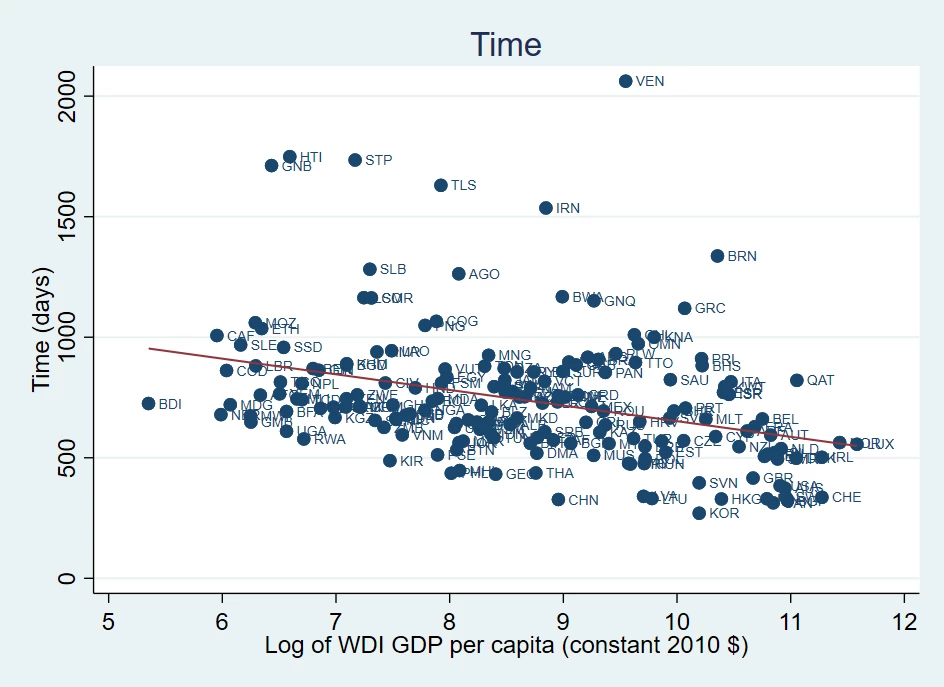Every country builds and maintains its roads, following procurement regulations to award contracts to private construction companies. Some countries do it in a more timely manner than others.
In Korea, for example, it takes 270 days to award a road resurfacing contract, from the moment the project documents are made available to interested bidders to the day on which the winning bidder can start the work. Canada, Singapore, Hong Kong SAR China, Finland, Lithuania, Switzerland, Sweden, Latvia and Australia are among the most efficient economies in terms of timeliness of procurement processes. In each of these economies, it takes a year or less to complete the necessary steps.
This data on procurement is the result of an ongoing study that the World Bank is conducting with professors Edward Glaeser and Andrei Shleifer of Harvard University. The study provides background research for the Contracting with the Government indicator of the Doing Business project. As part of this undertaking, we have collected new data on all aspects of public procurement. In an earlier blog for example, we calculated the share of public procurement to GDP globally at 12 percent, or $11 trillion dollars in 2018.
Not all countries are as efficient as Korea in awarding contracts. In Venezuela, it takes on average 2,062 days to go through procurement steps -- even before the contractor can start work. In Haiti, São Tomé and Príncipe, Guinea-Bissau, Timor-Leste, Iran, Brunei Darussalam, Angola, Lesotho and Cameroon it takes more than 3 years on average to procure basic road maintenance.
There are clear patterns in timeliness across country groups. High-income countries (using the World Bank income classification), countries with greater political accountability (as measured in the Polity IV database), and countries with greater economic freedom (as measured by the Freedom House index) process public works procurements in a more timely manner. Figure 1 illustrates the relationship by income level.
Figure 1: Time and income
Source: Doing Business database.
These differences are significant when we divide the sample of 190 economies into three equal-sized groups. For example, the difference between high-income and middle-income countries is 100 days; between high-income and low-income counties, over 200 days. Similarly, the difference between high political accountability countries and middle accountability countries is a month, while the difference between high and low accountability countries is five months on average.
The latter pattern suggests a way to move towards timely procurement: provide greater accountability. This is easier said than done, as accountability takes many forms. In the study with professors Glaeser and Shleifer, we investigate four of these forms: transparency, competition, integrity of contract and ease of exclusion from the procurement process. Stay tuned.




Join the Conversation